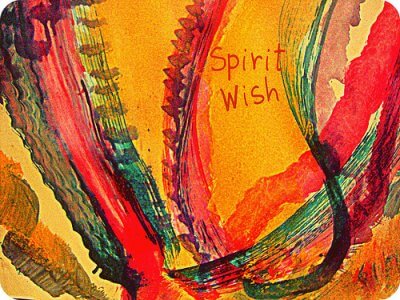Spirituality and Mental Health – Worth Investing In?
by Andrea M. Darcy
How connected are spirituality and mental health? Connected enough that spirituality is part of several modern psychotherapies, and the Royal College of Psychiatrists now has a special interest group devoted to the subject.
What is spirituality?
It’s an umbrella term that seems to be applied to all sorts these days.
But a close attempt to define spirituality might be to say that it is a feeling of being connected to something greater than yourself, that leaves you feeling inspired to be your best self.
It can also help to look at what spirituality isn’t. It’s not religion. Although it can include religion, many people who are adamantly non religious have a strong spiritual life (and vice versa, really).
Spirituality isn’t a set of rules or set in stone. In fact spirituality is a very personal thing. What helps us feel connected and inspired in our lives at this time might change in the future, and that is perfectly okay.
So while for one person spirituality could include following Buddhist principles, for another it might be being an atheist humanist. And while one person might practise mindfulness to feel more spiritually connected, another might spend time in nature.
Spirituality and mental health – how does one help the other?
So how are they really connected and how does one go so well with the other?
1. Spirituality helps us feel connected and supported.

By: Eugene Kim
It’s now being shown by studies that connection is the key to good mental health, reducing anxiety and depression. It even improves our physical health.
When we pursue a spiritual path we feel more connected to ourselves, which can give us a base to more effectively connect to others. Many spiritual paths also involve seeing how we are alike instead of different than others, and can help us feel supported by something greater than ourselves.
2. We feel less lonely.
Loneliness is being seen as a pandemic, connected to a host of mental health issues including depression and suicidal thinking. Spirituality again connects us to others, and can remind us that despite being alone in a room, we are connected to a greater whole.
3. Spirituality helps us have a wider perspective.
Spirituality tends to make us more aware of others and the world around us. Instead of seeing life as limited to our problems, we can take a bigger perspective where such problems can suddenly seem surmountable.
4. Spirituality gives life purpose.
Depression can arise from feeling like like has no point. Cultivating a spiritual life means we are given the purpose of what Jung called ‘individuation‘ – becoming our greatest, most whole self. When we seek this self, we become aware of the unique gifts we have to offer others, and it can lead to helping others.
5. We become self-aware.

By: eddiecoyote
The path of individuation leads to knowing ourselves well. This means we can start to make choices that suit ourselves, instead of always pleasing others at the sacrifice of our wellbeing.
6. Our self-esteem can benefit.
When we realise we are connected to a greater whole we take the pressure off of ourselves to be perfect. And a spiritual path means we learn to have more compassion for ourselves, which is now shown to be one of the fastest routes to self-esteem.
7. Relationships improve.
Ways of relating are so integral to good mental health that there are several types of psychotherapy that focus just on improving our relationships. Spirituality helps us feel more connected to others, which improves our relationships.
8. We become more able to let go of what does not serve us.
The larger perspective that spirituality offers means that if we need to let go of something, we have more of an ability to trust that another experience that is more suitable will come along.
Can good mental health also affect spirituality?
The process of self-development, such as trying counselling or psychotherapy, sees us take the time to know, understand, and honour ourselves. This leads to becoming less shut down to others and to the world around us. For many, this sense of greater connection then leads to an interest in a spiritual path.
Could mental health and spirituality ever be a bad match?

By: whologwhy
Everything can be used incorrectly, even spirituality. Some people use their spiritual life to feel better than others, for example. So something which should lead to connection leads to feeling ‘different’ and ‘outside’ of things.
But note this is not spirituality itself causing the problem. It’s just low a need to be better than others, which can relate to childhood issues.
I’m just not the spiritual sort – am I missing out?
If you feel good about yourself and your life, your relationships are in a good place, and you feel able to handle conflict and life change, then there is no rule you must have a spiritual life.
Of course the world ‘spirituality’ has been attached to so many things that the word itself can be a turn off. And many of us who actually do have a spiritual life might claim we don’t.
Remember, it’s about feeling connected and inspired. If you routinely spend time volunteering, writing poetry, doing free-form dance, painting… you might be having spiritual moments of wonder already. By identifying your spiritual ‘moments’, you can then more consciously use them as a tool of support should the next life change leave you floundering.
I would like to work on my spirituality, where do I start?
As we’ve just touched on, a good place can be looking at the activities you already do that leave you feeling inspired. How could you expand those practises in ways that might leave you more connected to others?
Then it can be a question of research and openness. Nowadays it is rather a spiritual free for-all, with even old schools of wisdom once kept private, Kabbalah, Eastern religions, hermeticism, now open. You can use the internet to learn things, find books, and search on sites like meetup.com for local groups.
Looking for an accessible tool to try as soon as today? Things like visualisation and mindfulness are easy to learn, and are becoming so popular even therapists now use them with clients (we recommend our easy to read, free “Guide to Mindfulness” as a starting point).
And again, you can also work with a psychotherapist that helps you integrate and expand your spiritual life. Types of therapy to try here include:
- transpersonal psychotherapy
- jungian psychotherapy
- existential psychotherapy
- mindfulness-based cognitive therapy
- compassion-focused therapy
- twelve-step groups.
Would you like to try a psychotherapy that helps you with your spiritual life? Harley therapy puts you in touch with transpersonal therapists in central London who can also work with you online.
 Andrea M. Darcy is a mental health and wellbeing expert and personal development teacher. With training in person-centred counselling and coaching, she always integrates the spiritual into her work with others. Find her on Instagram @am_darcy
Andrea M. Darcy is a mental health and wellbeing expert and personal development teacher. With training in person-centred counselling and coaching, she always integrates the spiritual into her work with others. Find her on Instagram @am_darcy





